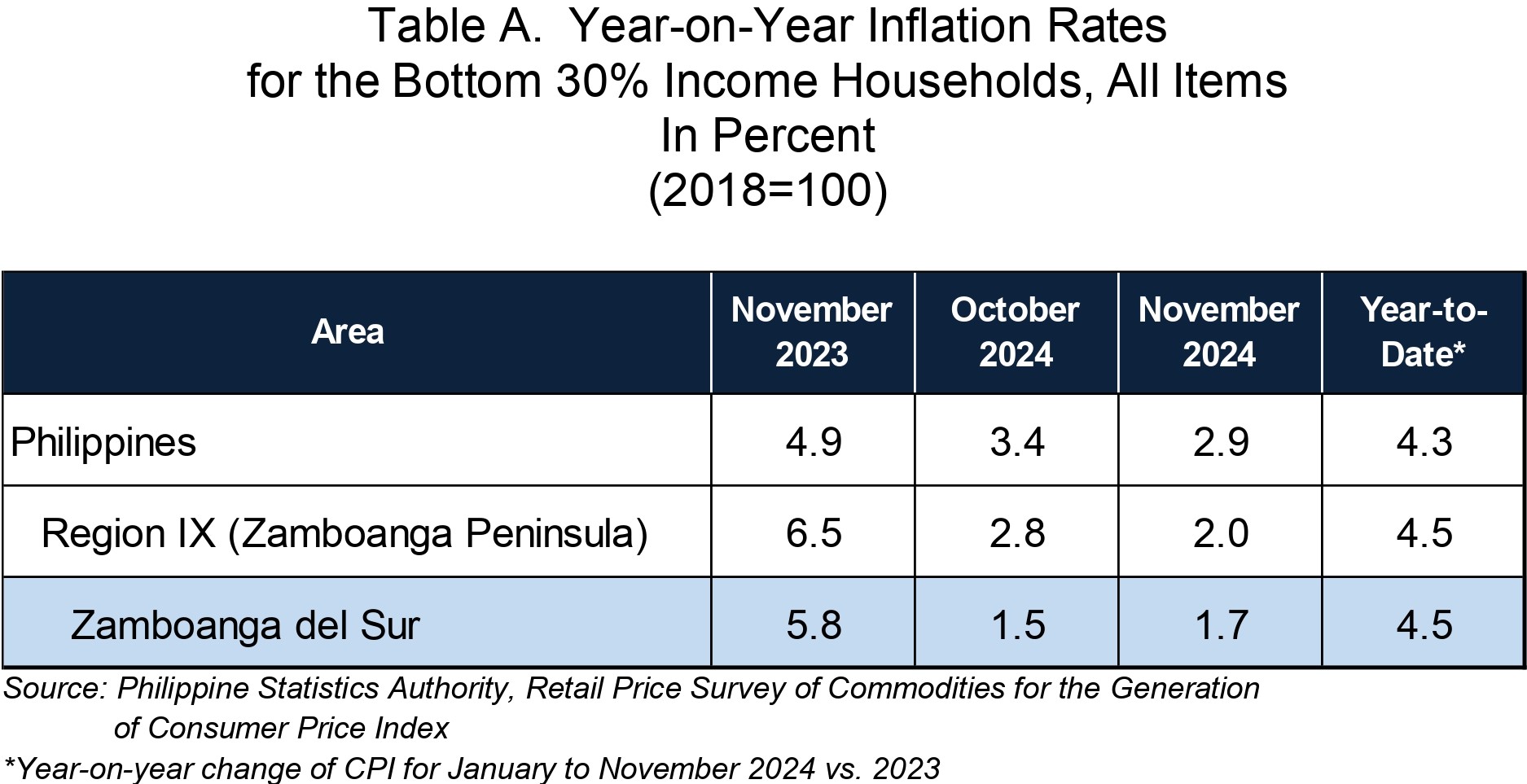
1. Overall Inflation
Zamboanga del Sur’s inflation for the bottom 30% income households increased to 1.7 percent in November 2024 from 1.5 percent in October 2024. In November 2023, inflation rate was posted at 5.8 percent. (Tables A and B, and Figure 1)
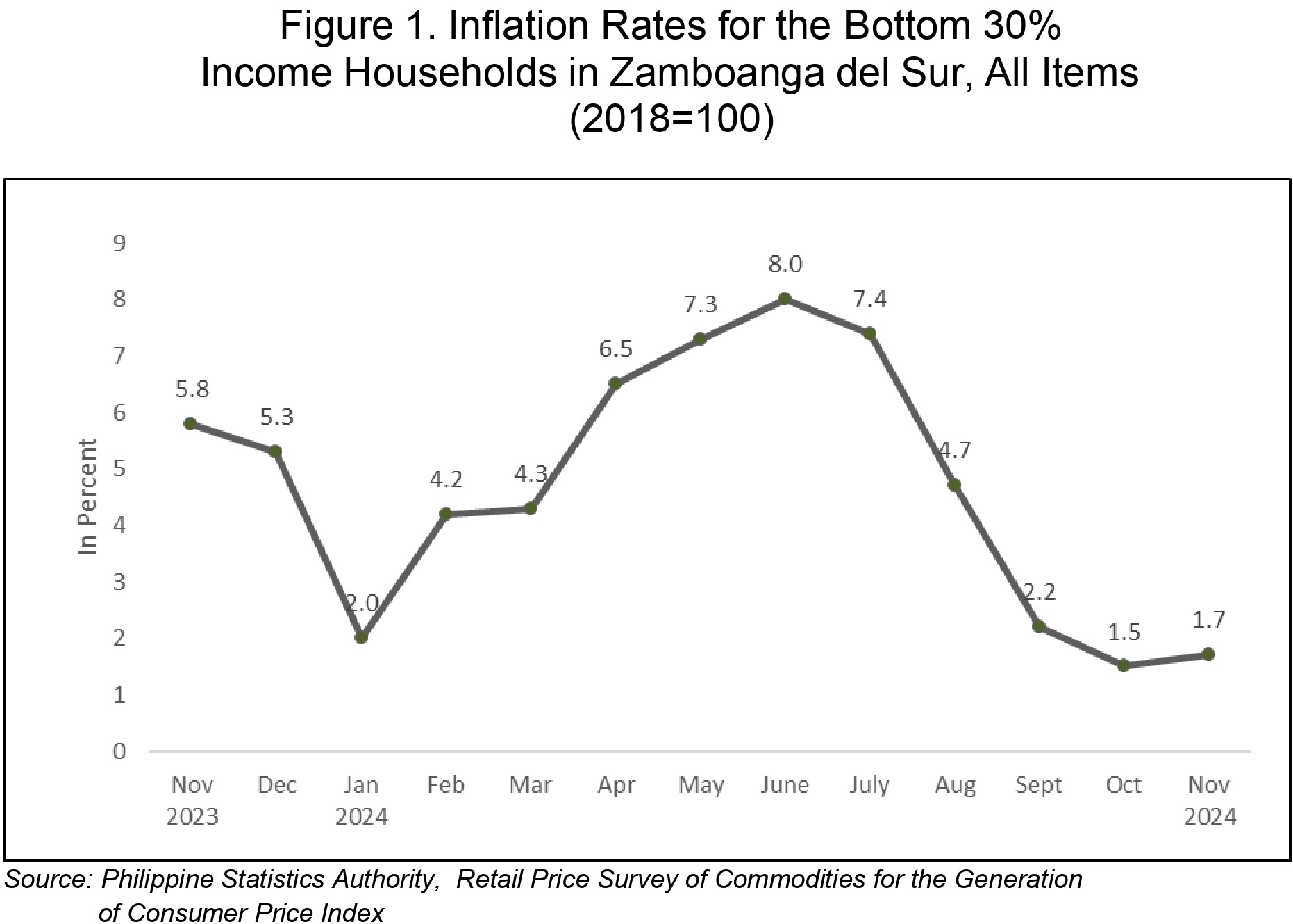
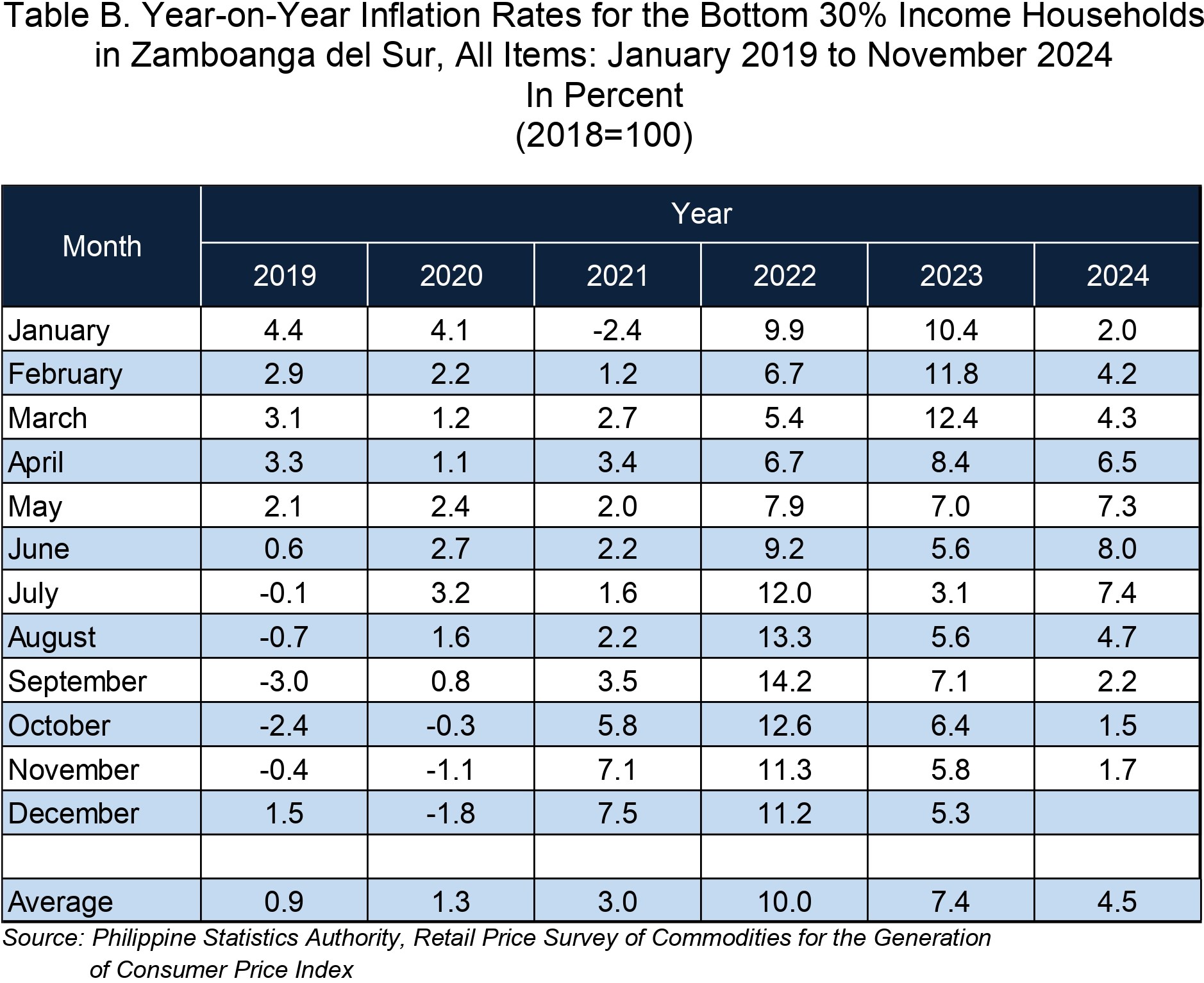
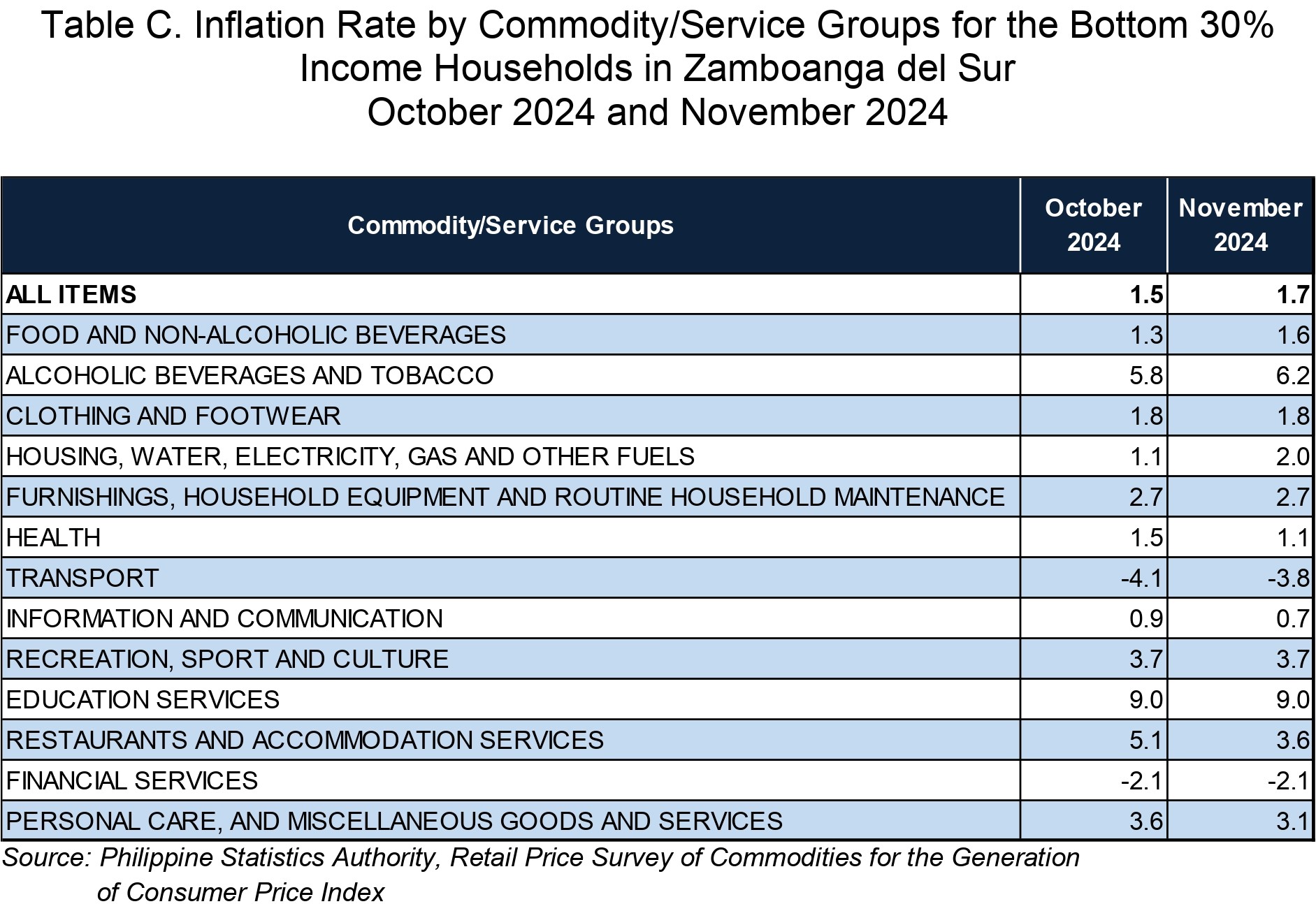
1.1 Main Drivers to the Uptrend of the Overall Inflation
The main driver of the upward trend of the overall inflation for this income group in November 2024 was the faster year-on-year increase in the heavily-weighted food and non-alcoholic beverages at 1.6 percent from 1.3 percent in the previous month. This was followed by housing, water, electricity, gas and other fuels which posted a higher annual increase of 2.0 percent in November 2024 from 1.1 percent in the previous month. Moreover, transport also contributed to the uptrend as it recorded a slower annual decrease of 3.8 percent during the month from a decline of 4.1 percent in October 2024.
In addition, a higher annual rate was noted in the index of alcoholic beverages and tobacco at 6.2 percent from 5.8 percent.
In contrast, the following commodity groups registered lower inflation rates during the month:
a. Health, 1.1 percent from 1.5 percent;
b. Information and communication, 0.7 percent from 0.9 percent; and
c. Personal care, and miscellaneous goods and services, 3.1 percent from 3.6 percent.
The indices of clothing and footwear; furnishings, household equipment and routine household maintenance; recreation, sport and culture; education services, and financial services retained their previous month’s annual increment. (Table C)
1.2 Main Contributors to the Overall Inflation
The top three commodity groups contributing to the November 2024 overall inflation were the following:
a. Food and non-alcoholic beverages with 61.6 percent share or 1.05 percentage points;
b. Housing, water, electricity, gas and other fuels with 12.4 percent share or 0.21 percentage point; and
c. Restaurants and accommodation services with 8.8 percent share or 0.15 percentage point.
2.0 Food Inflation
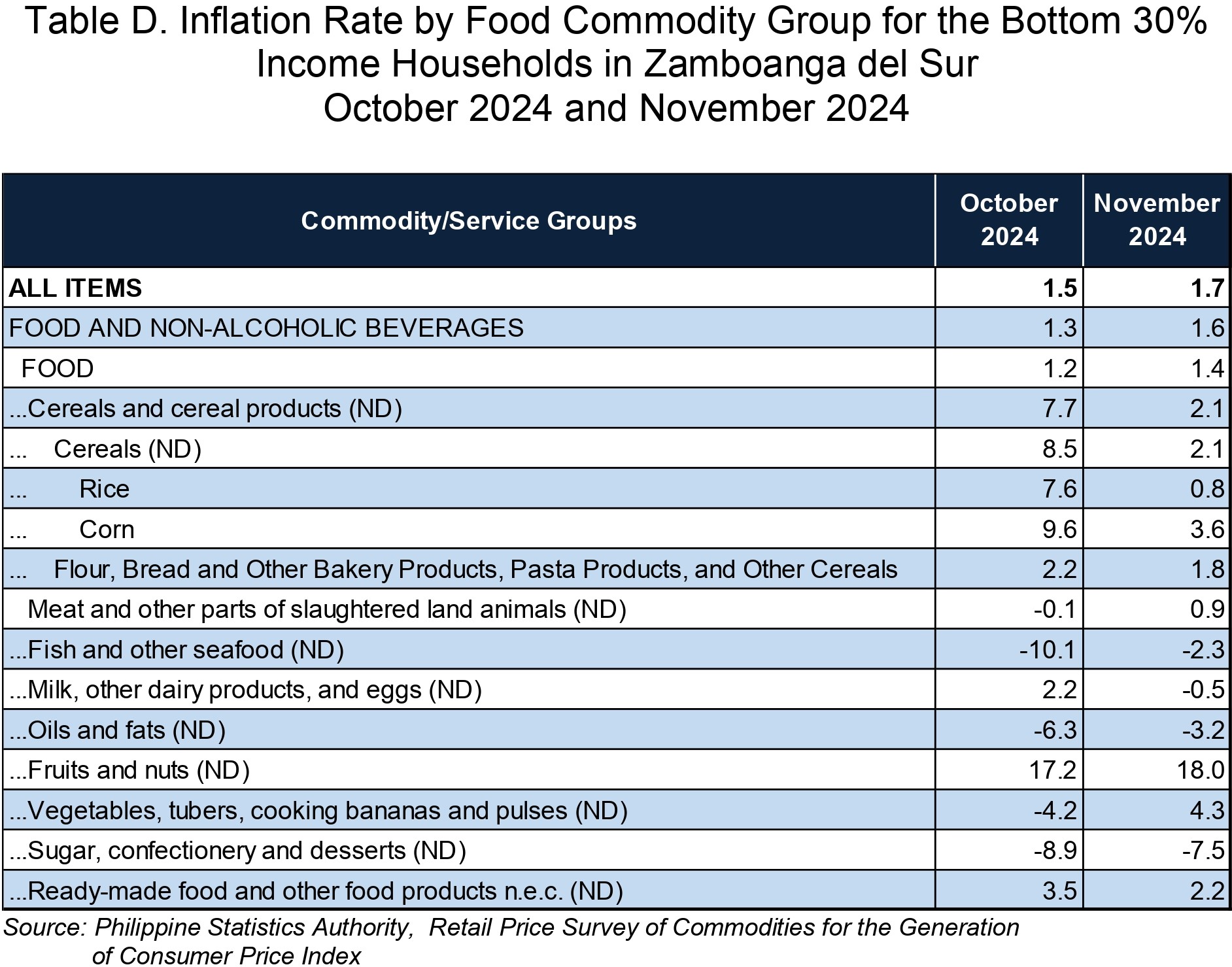
Food inflation for the bottom 30% income households in the province increased to 1.4 percent in November 2024 from 1.2 percent in the previous month.
2.1 Main Drivers to the Upward Trend of Food Inflation
The acceleration of food inflation in the province was mainly brought about by the slower annual decline in the fish and other seafood index at 2.3 percent during the month from a decrease of 10.1 percent in October 2024. Also contributing to the uptrend is the faster annual increase in the index of vegetables, tubers, plantains, cooking bananas and pulses at 4.3 percent during the month from an annual decrease of 4.2 percent in the previous month. The faster annual increase in the index of meat and other parts of slaughtered land animals at 0.9 percent from a decline of 0.1 percent also contributed to the uptrend.
Moreover, higher annual increments were noted in the indices of oils and fats (-3.2 percent from -6.3 percent); fruits and nuts (18.0 percent from 17.2 percent); and sugar, confectionery and desserts (-7.5 percent from -8.9 percent).
In contrast, the following commodity groups registered lower inflation rates during the month:
a. Cereals and cereal products, 2.1 percent from 7.7 percent;
b. Milk, other dairy products and eggs, -0.5 percent from 2.2 percent; and
c. Ready-made food and other food products, 2.2 percent from 3.5 percent. (Table D)
2.2 Main Contributors to the Food Inflation
Food inflation contributed 51.0 percent or 0.87 percentage point to the November 2024 overall inflation for this particular income group.
Among the food groups, the main contributors to the food inflation during the month were the following:
a. Cereals and cereal products, which include rice, corn, flour, bread and other bakery products, and other cereals, with 78.0 percent share or 1.09 percentage points;
b. Fruits and nuts with 41.2 percent share or 0.58 percentage point; and
c. Vegetables, tubers, plantains, cooking bananas and pulses with 24.9 percent share or 0.35 percentage point. (Table D)
DIMNA P. BIENES
(Supervising Statistical Specialist)
Officer-in-Charge
